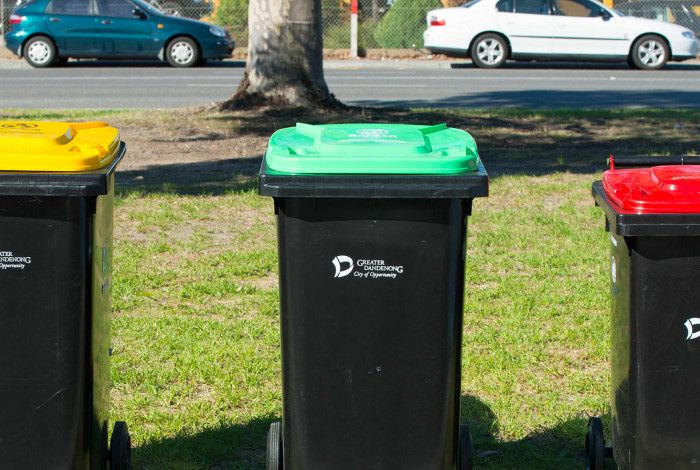The bin with the yellow lid is for household recycling and is collected fortnightly, on the same day each fortnight.
The standard bin is 240 litres (1100mm high x 600mm wide).
Residents may choose to upsize their recycling bin to 360 litres.
If you change your bin option, your Residential Garbage Levy will be adjusted to the new option charge.
For more information visit the Bin Options and Charges page.
Keep your recycling loose
Put your recycling into the bin loose. That way it can easily be processed and turned into new products, right here in Victoria.
Remember not to use plastic bags. Recycling in plastic or paper bags can’t be processed by sorting facilities, even if all the bagged items are recyclable. This means the hard work you put into sorting your recycling will go to waste.
Find out more
For further information and to see what is accepted and not accepted, as well as some helpful hints and tips please view the waste brochure below.
A guide to your waste collection service
Food Waste Recycling Information Guide - 6MB
Garden Waste fact sheet - 643KB
To find out more about recycling please visit what happens to my garbage, recycling, garden waste.
